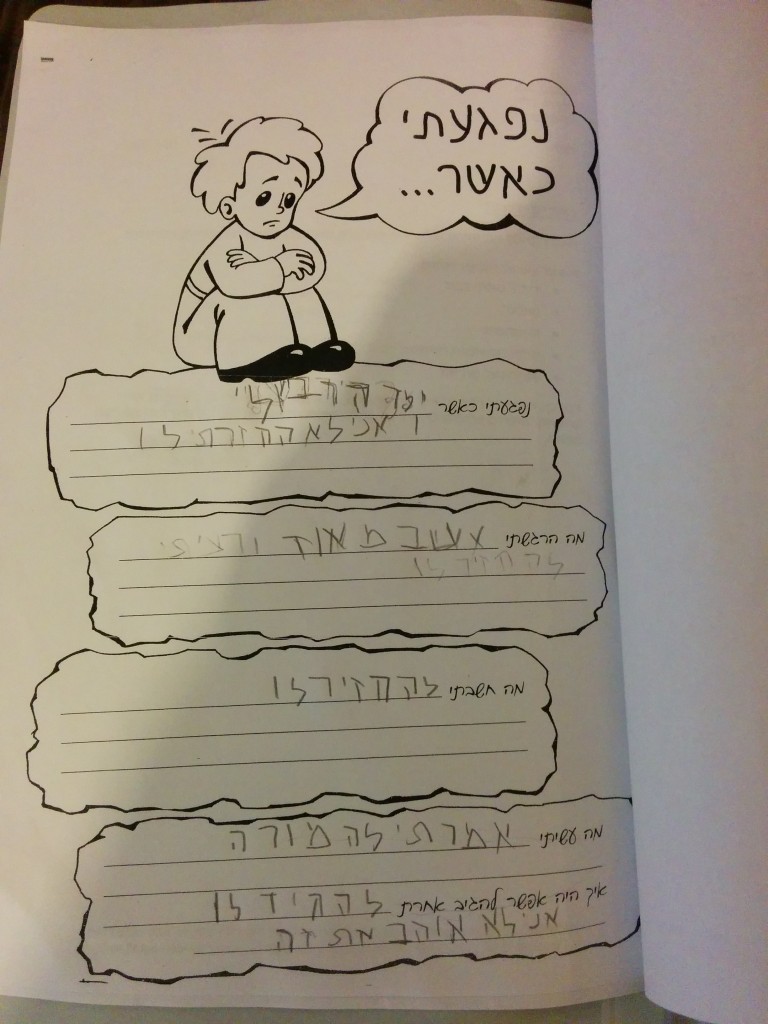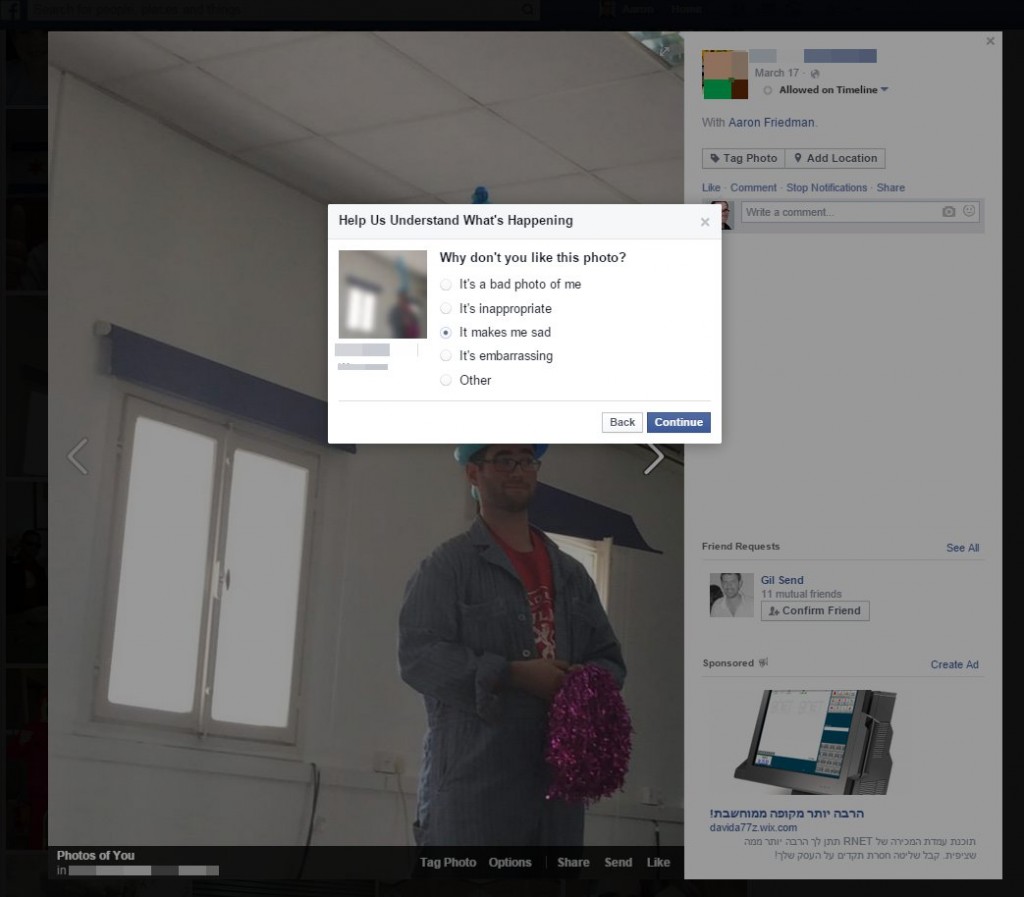My Son came home from school and worked on an interesting project that teaches emotional skills. How to respond when things happen. It looked like this:

You have to understand, this is a typical 1st grade school (or not typical) where the kids are psychotic. It’s survival of the fittest here. Maybe that is just what we have to go through. Best friends one second, and then YOU are the enemy the next. Like the flip of a switch, these little devils will turn on you! It sounds brutal.
This project is apparently a technique to help the kids express their emotions or learn them. I never thought this was something that actually had to be taught (which could have been very naive) but apparently it does. I don’t know if this is because times are different or if it was always needed to be taught formally. As a parent, I am glad it is taught.
Is Technology Destroying Our Social Skills?
It made me wonder if technology is messing up the future generations to some extent? It’s not such a crazy thought to think that Social media and the advancements of technology are making us anti-social creating lonely creatures that don’t know how to interact with the outside world (watch: the innovation of loneliness).
This connection to a device is new.
I didn’t have a cell phone until I got my drivers license at 16. And it was the big Nokia phone that couldn’t access anything (you know, the one before snake 2). Now and days, every kid has some sort of portable device that is glued to their hands. Perhaps our children are not learning important communication and emotional skills?
We humans understand each other by tone of voice or seeing facial expressions. But all day we are staring at phones, computers, texting and tweeting. We lose all that emotional connection. My feeling is that kids basically don’t know how to talk to each other.
Facebook Teaches Emotional Intelligence to Future Generations
I LOVE this! Facebook has a great initiative aimed at teaching teenagers how to be respectful for one another. When it comes to cyber bullying, in the studies that Facebook has done, it turns out that most users aren’t trying to be mean but more than anything lack the emotional maturity to realize what they are doing might be hurtful. And the biggest problem is, they aren’t learning from their actions that it’s not nice.
Here is some of the fascinating information from Facebook which was written in a New York Times article (I first heard about this on TWIG). In a situation where someone posted a picture that wasn’t appreciated:
- When Facebook gave kids a blank box to respond, often times kids said things that are not going to be helpful, including cursing out their friends.
- When Facebook added pre-populated messages to tell a connection you aren’t happy with their post, they saw a tremendous change in responses.
- When Facebook offered a significantly more developed responses like “This post is mean. It makes me feel sad and I don’t want it on Facebook,” 85 percent of teenagers who wanted a post removed sent a message.
I read from this data that more than anything, the kids didn’t even know they were being hurtful.
“Interestingly, more often than not, the posts were not meant to hurt, but were jokes lost in digital translation. When Facebook asked people why they shared a post that hurt someone else, around 90 percent of respondents said they thought their friends would like the post or would think it was funny.”
Apparently this is where the idea of incorporating stickers came from, to help young people express their emotion. Next on the radar for Facebook is noises. That should be interesting. Maybe this is why I love Emoji so much.
Technology Undoing The Mess It Created
We live in a very digitally polluted world where we have videos begging us to put down our technology so we can go enjoy life… and these videos have millions of views. Kinda ironic isn’t it.
I think technology and progress are incredible things. But it does come with a price. Sometimes it’s in the form of privacy, and other times, it’s in the form of emotional intelligence. I don’t love that this is the case, but I do love that Facebook recognizes the problem and is trying educate its young users. I love their commitment to the social responsibility. It could have been easy for them to throw their hands up and say “not our problem”. But they didn’t. They put an 80 person team in place to help educate the side effects of progress.
I love this!
Additional Reading: I read an incredible article about mindcraft too which talks about some of the incredible lessons young people can learn from playing. Worth reading too.
